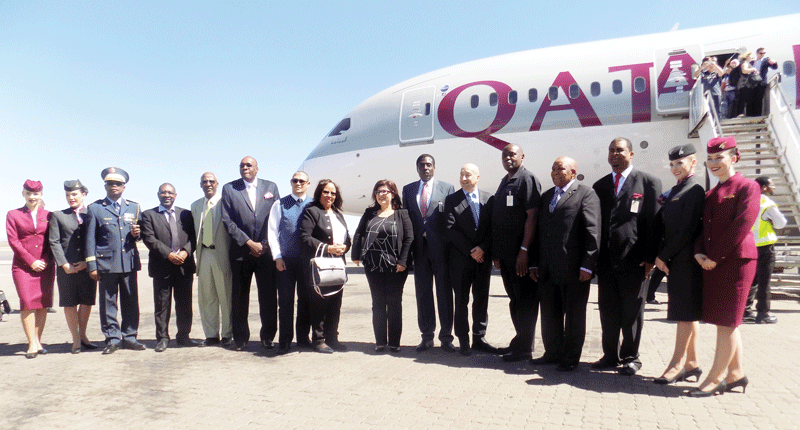
Simasiku plans to shake up energy
Former Chief Executive Officer of the Electricity Control Board of Namibia, Siseho Simasiku is at the forefront of a consumer advocacy group that intends to rid the energy sector of what they describe as the pervasive control exercised by state energy utility, Nampower.
Simasiku is the chairperson of the Africa Renaissance Consortium Consumer Advocacy Group, styling themselves under the label, ARC Consumer Advocacy Group.
Speaking to the Economist this week, Simasiku said, “There are so many things that are happening in the electricity supply industry. This country is facing a power supply crisis, it is a fact whether we want it or not, sometimes people say we should not talk about the crisis, but that crisis is there.”
Explaining the need to establish a consumer advocacy group, Simasiku urged public participation in the power sector, and called for the establishment of a quartet made up of the policy maker which would be government, a regulator with teeth taking the form of the Electricity Control Board, the power utility Nampower and what Simasiku deemed as the most important link of the quartet, the consumer which he described as the footer of the [electricity] bill.
Research done by the group suggests that the bulk tariff is expected to increase to N$4 per Kilowatt hour should Nampower has its way and follows through with an audacious power generation plan. The advocacy group further argues that the repercussions could be so severe that Nampower’s credit rating and even that of the country, can be in danger of slipping. The advocacy group anticipates a catastrophic slump in the mining industry with the potential to shut down various mining projects, most notably Husab, and Tschudi, when the electricity price exceeds a critical threshold. The group argues Namibia will reach this point within the next five years.
However, a power generation plan by the advocacy group should keep the bulk tariff from going beyond N$2/kWh.
Reiterating the need for an advocacy group Simasiku added, “Some people in the industry have said that it is necessary to have a group that will look at the specialised professional parts of the energy sector. That group will become the one to do research, the one to come up with the information and all that, but I believe that a consumer advocacy group is necessary because there is a tendency to ignore the importance of the consumer.”
He continued, “We are looking at an understanding that there is a need for an advocacy group. What will follow is for us to engage the consumers themselves, in fact we have started and once we have consulted sufficiently, we don’t want to create again a situation where the consumers themselves are left out. We have to put up a team representing the consumers and that can be done through consultation and we have started the process to bring in all consumers.” According to Simasiku, the advocacy group have held meetings with amongst others, Weatherly International and Swakop Uranium, seeking to gain the insight of the biggest users of electricity.
He added, “We will slowly reach different consumers and different consumer bodies. We welcome engagement with other consumer bodies.
The problem with the consumer is that the industry is very complex. We have deep insight into the industry and consumers are welcome to become members of the advocacy and have access to information they would otherwise not have available.” Another motivation for the establishment of the advocacy group is the dire need to equip the consumer with the necessary information to make informed decisions. Shedding light on the complexities at play, Simasiku said, “I became disturbed by the fact that, when I asked consumers to pose questions, to comment on the recent Nampower presentations, they could not do that and the simple reason was that they had no information. And therefore the consumer advocacy group should address that issue and ensure that the consumer has that information because the consumers should not be taken as simple [units] in the equation.
They can also make proposals, they can make various contributions to bring tariffs to levels where they are affordable, acceptable and reasonable and they can do that only if they have enough information.”












































